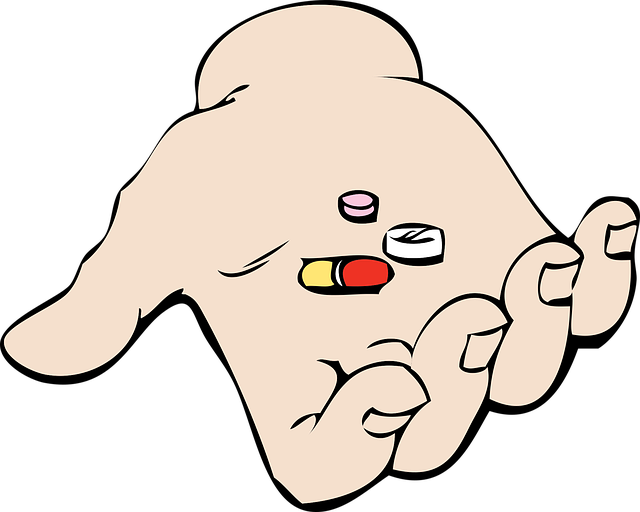Mindful movement, integrating physical exercise with mindfulness, offers a holistic wellness approach, especially beneficial for individuals in mental health treatment centers for co-occurring disorders. By focusing on the present moment and cultivating awareness of bodily sensations, thoughts, and emotions, this practice promotes self-awareness, reduces stress, and alleviates pressures associated with traditional fitness routines. Mental health centers are incorporating mindful movement classes, such as yoga and tai chi, into holistic wellness programs to encourage mental health improvement and overall well-being. Integrating mindfulness into daily routines through simple exercises, online resources, and support groups can significantly aid in managing stress and promoting recovery for those dealing with co-occurring disorders.
“Unwind and transform your mind-body connection through mindful movement—a holistic approach to fitness that’s taking the wellness world by storm. This article explores how combining exercise with mindfulness principles can significantly reduce stress levels, offering a calming sanctuary from today’s fast-paced lives.
We’ll delve into the benefits for mental health treatment centers focusing on co-occurring disorders, where mindful movement classes provide a unique and effective therapeutic tool. Additionally, discover practical tips to integrate this practice into your daily routine and experience the power of mindfulness in motion.”
- Understanding Mindful Movement and its Benefits for Stress Reduction
- How Mental Health Treatment Centers for Co-Occurring Disorders Incorporate Mindful Movement Classes
- Practical Tips to Integrate Mindful Movement into Your Daily Routine
Understanding Mindful Movement and its Benefits for Stress Reduction

Mindful movement, also known as mind-body exercise, is a holistic wellness approach that combines physical activity with mindfulness techniques. It involves focusing your attention on the present moment during movement, fostering a deeper connection between your mind and body. This practice is not about achieving perfection in any given exercise but rather cultivating awareness and acceptance of bodily sensations, thoughts, and emotions as they arise. By prioritizing nutrition, exercise, and stress management, mindful movement classes offer a comprehensive strategy for enhancing overall well-being, particularly beneficial for those seeking mental health treatment at centers for co-occurring disorders.
The benefits of this practice for stress reduction are substantial. It helps individuals develop a stronger sense of self-awareness, enabling them to recognize and manage their stress responses more effectively. Research suggests that mindful movement can reduce cortisol levels—a hormone closely linked to stress—and promote relaxation. Moreover, it encourages a non-judgmental mindset, helping to alleviate the pressures often associated with traditional fitness routines. This approach is particularly appealing for those struggling with co-occurring disorders, as it provides a gentle and supportive way to engage in self-care practices that contribute to improved mental health outcomes.
How Mental Health Treatment Centers for Co-Occurring Disorders Incorporate Mindful Movement Classes

Mental health treatment centers for co-occurring disorders increasingly recognize the power of mindful movement classes as a holistic wellness program. These classes, which seamlessly blend exercise with mindfulness principles, offer a unique approach to stress reduction and mental health improvement. By incorporating activities like yoga, tai chi, or gentle aerobics, coupled with breathing exercises and meditation, treatment centers create an environment that prioritizes nutrition, exercise, and stress management for overall well-being. This comprehensive strategy caters to the mind, body, and spirit, fostering a sense of calm and balance often elusive in individuals grappling with co-occurring disorders.
Centers tailor these mindfulness programs to individual needs, crafting personalized mindfulness plans that go beyond the confines of traditional therapy. Online support groups for loved ones of addicts also complement these classes, providing a network of understanding and encouragement. Such multifaceted initiatives not only aid patients in their recovery journeys but also educate their families and caregivers on holistic approaches to supporting mental health treatment and fostering healthier lifestyles.
Practical Tips to Integrate Mindful Movement into Your Daily Routine

Integrating mindful movement into your daily routine can be a game-changer for managing stress and promoting overall well-being, especially when navigating challenges like co-occurring disorders. Start with small steps – incorporate 10-15 minutes of mindful exercises, such as yoga or tai chi, into your morning or evening routine. Focus on your breath and the sensations in your body to stay present.
Consider exploring online resources for guidance, such as video tutorials designed to help you practice at home. Additionally, engaging with support networks like Online Support Groups for Loved Ones of Addicts can provide valuable peer-to-peer connection and understanding. Trauma-Informed Care approaches and Healthy Relationships Coaching in Early Sobriety are also beneficial resources for individuals on their recovery journey, helping to cultivate a sense of safety and build resilience through movement practices that prioritize mindfulness.
Mindful movement classes emerge as a powerful tool in stress reduction, especially within mental health treatment centers for co-occurring disorders. By seamlessly blending exercise and mindfulness principles, these classes offer a holistic approach to well-being. Integrating mindful movement into daily routines can significantly enhance resilience against stress and promote mental clarity. With practical tips accessible to everyone, there’s an opportunity to cultivate a calmer, more balanced life—a benefit that resonates deeply with those navigating co-occurring disorders.






